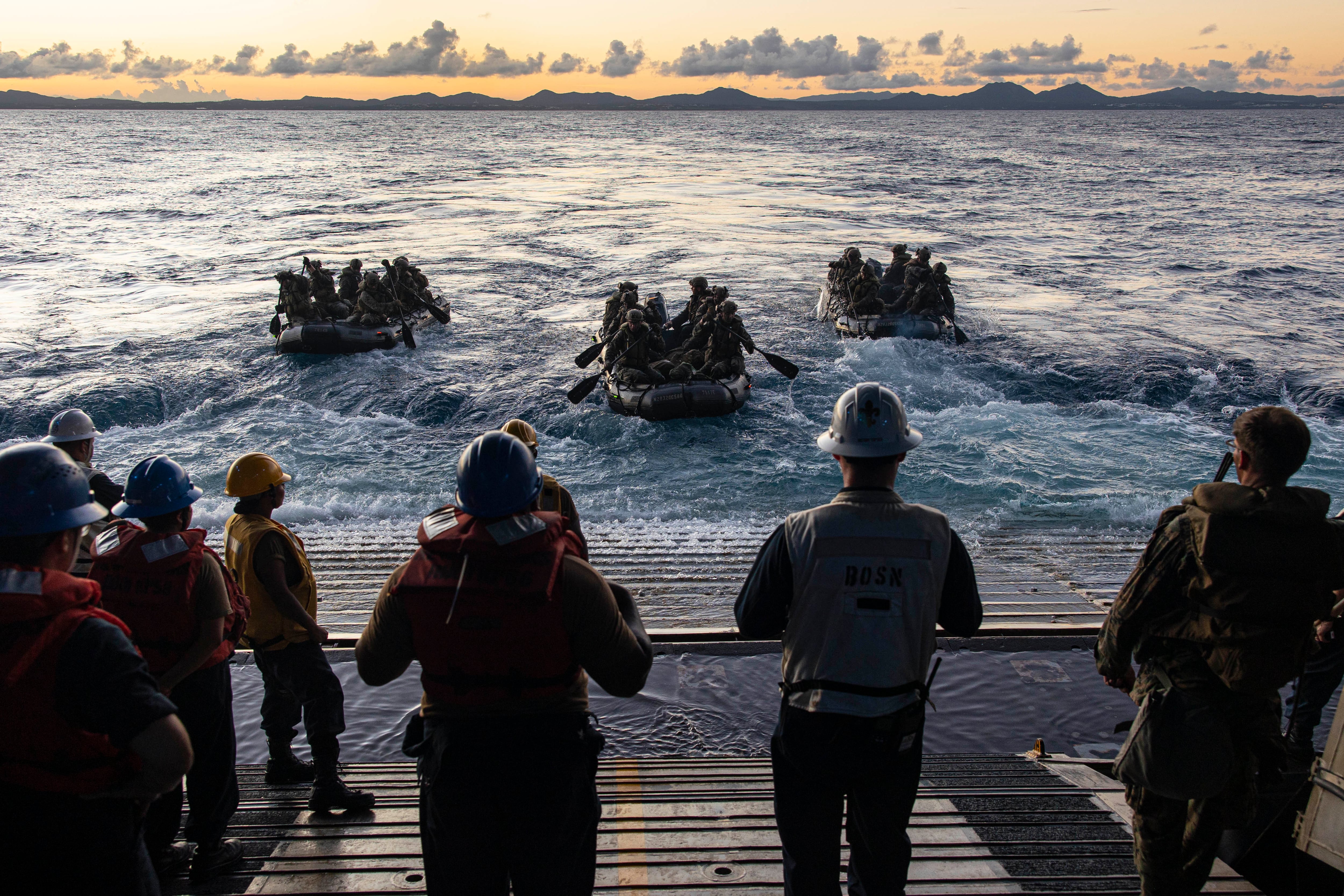Marines always have had their own identity ― an “eternal spirit” according to Gen. John Lejeune ― that animates our Corps. The unintended consequences of Talent Management 2030 could kill that “eternal spirit” and strip Marines of their distinctive identity.
Lt. Gen. Victor Krulak wrote that the Marine Corps exists “because of what the grassroots of our country believe we are and believe we can do.”
America’s special trust and confidence in her Marines will be shattered if the Corps’ customs, traditions and ethos are lost.
Identity is fragile. Unlike the gutting of force structure and equipment, which always can be added back albeit at great expense and over time, attributes that define Marines once extinguished are lost forever.
RELATED

Talent Management 2030′s numerous references to Army and Air Force programs and academic trends should give us pause.
Its basic assumption that the Marine Corps is mired in an “industrial age (talent management) model” and needs new models for recruiting and retaining talent suggests a radical change in who we are.
The plan also assumes an “industrial age” concept of leadership, implying our current approach is no longer relevant.
More than 60 years ago, Krulak outlined a concept of leadership that is as applicable today as it was then, writing that there is within the Marine Corps an “inspirational personal relationship among our officers and rank and file ― a relationship quite different than that found in the other services and one which heretofore has distinguished our Corps.”
If that is “industrial age” leadership, then we need more of it, not less.
The plan also advocates academic management concepts currently trending in Silicon Valley.
Let’s not be fooled, neither Silicon Valley nor Fortune 500 companies are models for “managing talent” in an organization whose tradition is to be the readiest when the nation is least ready.
Talent Management 2030 additionally emphasizes retention of highly talented Marines through potentially divisive programs, such as pay differentials, enhanced parental leave, lateral entry and the opportunity to change career fields without restriction ― all without a clear analysis or understanding of their potential adverse impacts. Many, maybe most, of these “innovative” programs are ill-suited for an institution whose culture is “first to fight” and whose ethos is characterized by service and sacrifice.
Culture, traditions and ethos, those intangibles that define Marines, are the underpinnings of our combat effectiveness and must be preserved.
Whether intended or not, our identity will be eroded, if not lost, if we pursue “flavor of the month” business and academic personnel management models. “Every Marine a rifleman” will be sacrificed.
Talent Management 2030 envisions Marines as specialists, specifically matched to an assignment for which they are uniquely qualified and trained.
This is not who we are. We all are riflemen, primarily or secondarily trained for the rigors of combat.
Talent Management 2030′s own words set the tone for stripping Marines of their identity as a rifleman: “Our core manpower model (post World-War II) thus aimed to create and maintain an enlisted force predominately composed of young troops … prepared for the physical rigors of combat, but otherwise requiring little education or training.”
This statement discounts our enlisted Marines who selflessly have served the nation. It also dismisses the cutting-edge training and education systems that are the legacies of Gen. Al Gray and his successors.
Maturing the force, lateral entry, specialized recruiting for individuals with critical skills and a host of other “business model” approaches are all intended to develop a force of specialists, not to nurture a culture of warfighting where every Marine is a rifleman.
Officers will be discouraged from seeking command.
The sad reality is that too many outstanding officers never have the opportunity to command.
The Marine Corps always has had more officers exceptionally qualified than positions available. Nevertheless, every officer has been encouraged to seek command, beginning at The Basic School.
Force Design 2030 will reduce the number of command positions, exacerbating the problem.
Given the mismatch between the numbers of outstanding officers qualified for command and positions available, Talent Management 2030 simply will encourage more officers to remain in staff or technical positions and not seek command.
To further discourage those who would seek command, Talent Management 2030 is very clear that command is no longer the most important aspiration of a Marine officer: “Our personnel system and service culture must recognize that superior performance and proficiency are not exclusive characteristics of commanders or officers seeking command.”
No officer should be discouraged from seeking command. That is not our culture or tradition.
Officers should be encouraged to seek command, knowing that not everyone will be selected. The Marine Corps always has recognized command as first among equals in assignments, painfully accepting that too many outstanding officers will not always get the chance.
Promotion board opt-outs, encouraging officers to pursue paths other than command, lateral entry with career credit to qualified civilians, and other considerations for officers with staff and technical skills will, at some point, adversely impact the soul of Marine leadership: command.
Whether intended or not, Talent Management 2030′s business model policies will benefit some Marines but not others.
The young, single, enlisted Marines in the combat arms fields, who have historically done the Corps “heavy lifting,” will be the most disadvantaged.
Our civilian and military leaders have not been particularly good at predicting the “next war.”
According to former National Security Advisor H.R. McMaster: “We have a perfect record in predicting future wars ... 0%.”
Our most precious asset is our Marines. We risk everything if we adopt talent management models unsuited for our culture of fighting and winning “in ever clime and place.”
Col. Warren Parker was an infantry officer while on active duty, who served in a variety of operational commands as well as recruiting and manpower.









